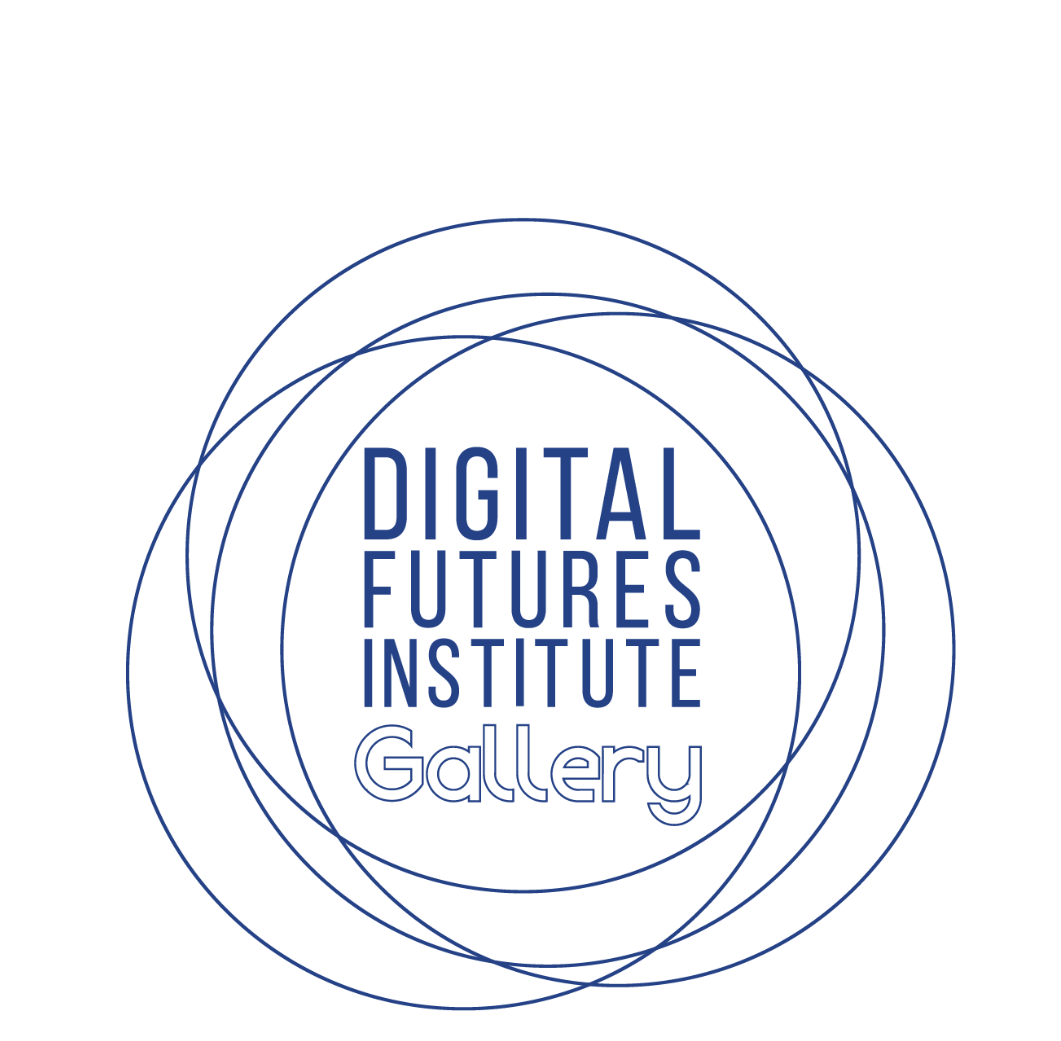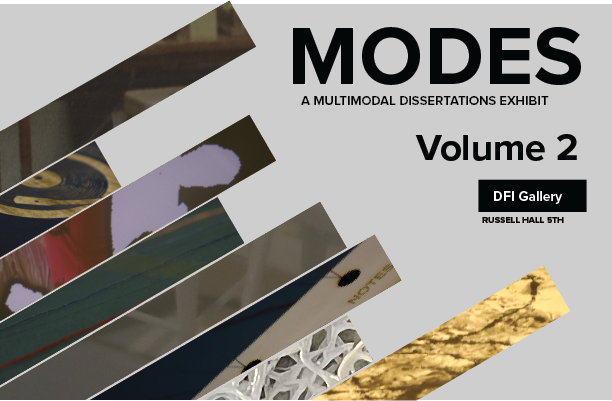
The DFI Gallery was established in June of 2022 with the mission of promoting public scholarship by blending research, media, and art. We invite visitors to explore new ways to connect, imagine, and engage in the immersive experiences designed in this space.
MODES V2
April-June 2025

A Multimodal Dissertations Exhibition (Volume 2)
What can multimodal research look like and how might that shape the forms a dissertation takes? As part of an ongoing effort to archive, showcase, and discuss multimodal dissertations, this exhibition highlights five dissertations from scholars associated with Teachers College. From album, to dance, to archive, to note-taking, to exhibit, each of these examples finds a way to build off the written page.
This exhibit explores how scholars are bridging the gap between research, practice, and audience with their creative dissertations. These alternative modes of scholarly inquiry and expression provide insight into different ways data can be collected and responded to in a mediated, digital, multimodal world.
The DFI Gallery is open
M-TH 9-5pm
Join us on Thursday, May 15th, from 1:00 - 2:30 as we invite the five dissertation authors from the MODES V2 exhibition to a panel discussion of their work. Hear them discuss their motivation, design, and discoveries as they find ways to build off the written page.
Past Exhibits
Sensory Interruptions
March 2025
Pricks and Pills
February 2025
Puppets in Education
October-January 2025
Sandbox
June-September 2024
Boundaries of Adventure Playgrounds
March-May 2024
Playing With Form
November - February 2024
MODES
June-October 2023
Undfolding
May 2023
Gestures
January - February 2023
Freedom Dreaming for Educational Justice
October - November 2022
Crossings
June - September 2022
For a map, directions, and a virtual tour of TC, review the Visit Teachers College page.